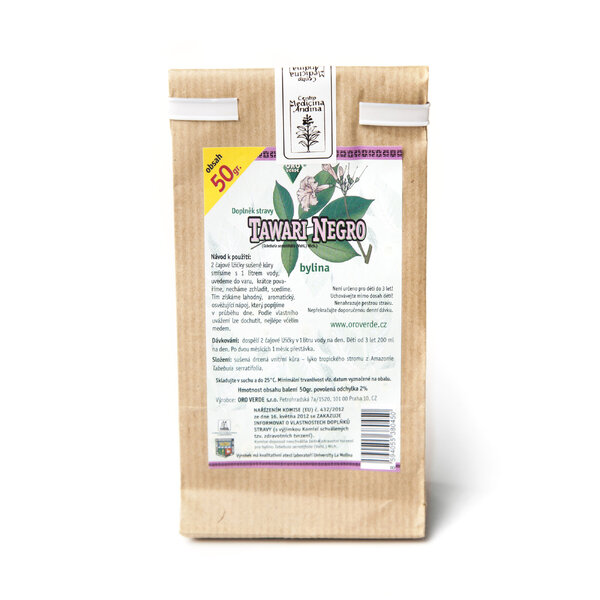Tawari Negro - 50g
-
Country of Origin Peru
-
Type of Tea Herbal Tea
-
Total Price: 5.50 € (including VAT)
Tawari Negro (Latin Tabebuia avellanedae, also known as Pau d'Arco, Lapacho, or Ipe Roxo) is a tree native to tropical areas of South America, especially Brazil, Paraguay and Argentina. It has striking purple or pink flowers and is one of the national symbols of Paraguay.
This tree, which grows to a height of 30 metres, is known for its medicinal bark, which has been used in traditional medicine for centuries. Its relative in the genus Tabebuia is the well-known Lapacho.
Dosage: Use 5 - 10 grams of the herb per 1 litre of water.
Warning: Tawari Negro is not recommended for pregnant and lactating women as it may affect hormonal balance and uterine contractions.
Blood clotting disorders: may have a mild anticoagulant effect - people taking blood thinners should be cautious.
Long-term use: long-term use without breaks is not recommended.
REGULATION (EC) No 1924/2006 OF THE EUROPEAN PARLIAMENT AND OF THE COUNCIL of 20 December 2006 on nutrition and health claims made on foods unfortunately prohibits us from making more specific health claims, except for those approved by it. Therefore, we do not make any other claims, even those that have been known and proven over the centuries.
Tea Preparation for Single Infusion
-
Tea Quantity 5 - 10 g
-
Water Quantity 1 l
-
Water Temperature 100 °C
-
Brewing Time Povaríme 20 - 25 minút
-
Number of Infusions 1
-
Tea Characteristic bez kofeínu
